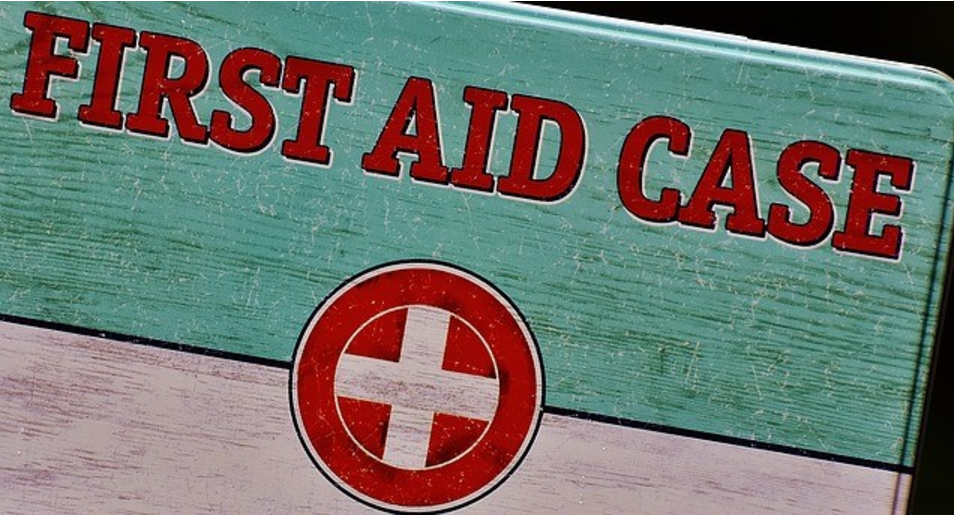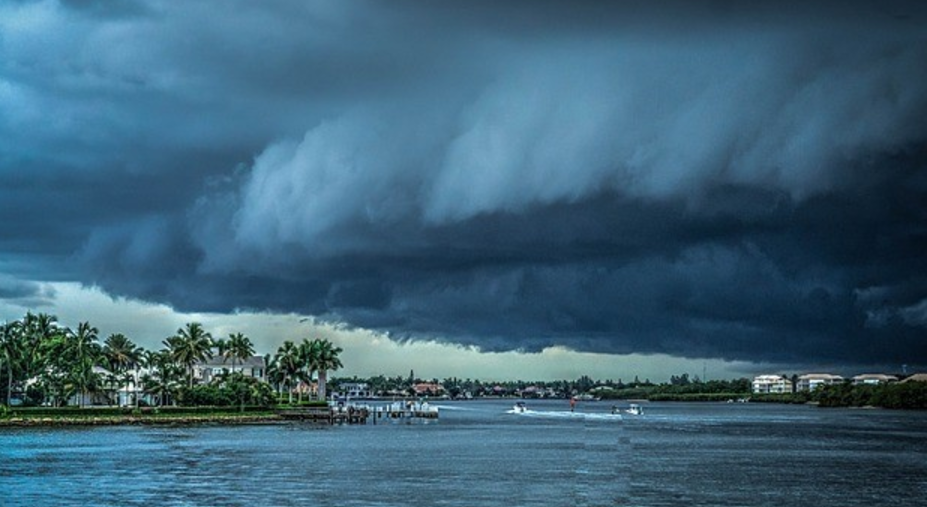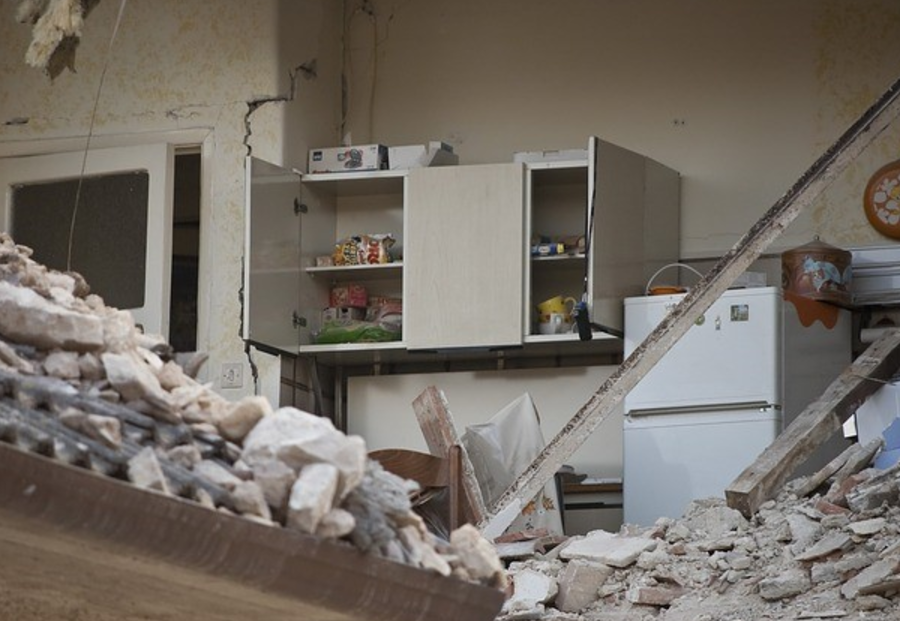
We all like to believe that when a major hurricane is headed our way or a tornado warning is issued, we'll know exactly what to do. But inclement weather is unpredictable, and it can be frightening and chaotic to handle in the moment. It's crucial to prepare and plan well in advance for any natural disaster that your area is prone to, especially if you have a disability that could require additional safety considerations.
This disaster safety guide will help you know what hurdles to anticipate, factors to consider, and ultimately, what to do when emergency weather occurs. It will take into account people at all different ability levels and the kinds of challenges they might encounter during hurricanes, blizzards, landslides, tornadoes and earthquakes. Be sure to consult with your doctor about any additional precautions you might need to take, as each person may have more specific needs to address.
General Preparation
Regardless of where you live or the specific inclement weather your area may see, it's important to take a few general safety precautions. First, establish a personal emergency network of family, friends, neighbors, and coworkers who can help you in the event of a disaster. You should have a list of at least three people for each place you spend regular time in: home, work, school, vacation homes, or timeshares. Some people may pop up on multiple lists, but the more options you have, the better. Their job is to check in on you when a storm is brewing or weather watch is issued, and make sure you'll have a safe place to be. You'll need to establish how everyone will get in touch, keeping in mind that phone service might be limited. For those nearby, it can be as basic as a knock on the wall to your neighbor or hanging a piece of cloth outside your window.
 Your network will need to have any necessary keys or security codes to reach you, so make sure it's someone you trust implicitly. Go over how to use and transport any special equipment you'll need, as well as medications that will need to be taken with you. Put together a disaster safety kit with about a week's worth of supplies and keep it somewhere secure but easily accessible. If you have a service dog, put aside the items they'll need. You'll also want to let your service animal spend some time getting to know the members of your network. It will be crucial that the animal trusts those people to lead the way to safety in the event of an emergency.
Your network will need to have any necessary keys or security codes to reach you, so make sure it's someone you trust implicitly. Go over how to use and transport any special equipment you'll need, as well as medications that will need to be taken with you. Put together a disaster safety kit with about a week's worth of supplies and keep it somewhere secure but easily accessible. If you have a service dog, put aside the items they'll need. You'll also want to let your service animal spend some time getting to know the members of your network. It will be crucial that the animal trusts those people to lead the way to safety in the event of an emergency.
Find out the names and locations of designated safe zones and shelters in your area, noting which ones are closest to your home, workplace, or any other place you are likely to be in the event of an emergency, such as a friend's home. Make practice drives to become familiar with the route, learn how long it takes to get there, and to get a good look at the surrounding area. Practice a faux emergency to go over all the steps needed, from getting into your front door to loading up your equipment to transporting you to the car, for example. Pay close attention to how long each task takes you to do, and look for opportunities to cut down your time. Even just moving your emergency kit closer to the front door can save precious seconds.
Replenish your supply kit as necessary, and consult your doctor about the shelf lives of your medications so they don't lose their effectiveness. Even if you'll be planning to evacuate your home in most emergency situations, don't forget to set aside plenty of bottled water, non-perishable foods, and sanitary supplies. If dangerous conditions make it difficult to reach you, it's crucial that you'll have the means to get by in the meantime.
If you use powered medical equipment in your daily life, you may want to consider buying a generator for emergency situations. It may be a sizable investment now, but you never know when you could end up needing it.
Finally, go over your insurance policies to be sure you completely understand everything that you are and aren't covered for. Ask specifically how your medical equipment is protected, and if it's only guaranteed under certain conditions. Flood insurance and water damage is often not included in certain policies, so don't be afraid to ask for clarification from your agent.
Hurricanes
If you live in a tropical or coastal region, it's important to be aware of the peak hurricane season in your area. If you live on the Atlantic Coast, you're at highest risk from June 1 until November 30. For the Pacific Coast, hurricanes are most likely May 15 through November 30. Pay attention to weather reports year-round so you'll know in advance if a particularly rough season is ahead, and make it a consistent conversation with your safety network. Be sure that if a colleague will be your work ally, you talk to your partner about where you'll go if an emergency occurs during business hours. Plan to first get yourself to safety, and then check in as soon as possible.
 When your peak season does roll around, keep a close eye on any major storms that are brewing, even if they aren't predicted to hit your area. Hurricanes have been known to make sudden, dramatic shifts in direction, so the more updated you stay on how they're progressing, the less likely they'll catch you off-guard. Know the designated evacuation routes for your region and how to reach them quickly; even if a spouse or caregiver will be driving, you can help guide them if you know the way. However, be prepared for the possibility of flooded roads and scout out some alternative routes in advance. Remember: the rule is turn around, don't drown, so be prepared.
When your peak season does roll around, keep a close eye on any major storms that are brewing, even if they aren't predicted to hit your area. Hurricanes have been known to make sudden, dramatic shifts in direction, so the more updated you stay on how they're progressing, the less likely they'll catch you off-guard. Know the designated evacuation routes for your region and how to reach them quickly; even if a spouse or caregiver will be driving, you can help guide them if you know the way. However, be prepared for the possibility of flooded roads and scout out some alternative routes in advance. Remember: the rule is turn around, don't drown, so be prepared.
If a hurricane watch is issued, you'll need to establish whether or not you'll be staying in your home. Heed the advice of the National Weather Service and plan to evacuate if they give the order. Keep in mind that even if the storm isn't dangerous enough to warrant an evacuation, strong winds and rain could still knock out power lines, and flooding can occur in low-lying areas – which could make it difficult or even dangerous if you'll need power for any equipment. Play it safe not only to protect your family, but to eliminate as much stress from the situation as possible.
If you have ample warning to prepare for a hurricane's arrival, do what you can to protect any medical equipment you'll leave behind. Double wrap supplies like gauze and tools in plastic bags and store them somewhere secure and high in case of flooding. If possible, wrap electronic and large equipment in plastic and move them to the highest room you can. Don't prioritize any of this over your own safety, but protect what you can if there's time.
Anticipate difficult mobility conditions even if there isn't immediate flooding in your region. For example, if you normally use a motorized chair, it might be quicker and easier to use your backup manual chair for the evacuation. This can be especially helpful in instances where a neighbor or relative who doesn't have the necessary car modifications to transport your motor chair. Grab heavy boots and work gloves to protect yourself from debris.
Blizzards
As with hurricanes, you often have a bit of warning with blizzards, so stay informed and alert to updates. If you have a generator, check to be sure it's in good working condition so it will be ready the moment you need it. It's a good idea to keep backup equipment batteries as part of your emergency supply kit, but if you have the safe opportunity to buy more when a blizzard is on the way, do so.
You'll also want to check in with your doctor. Request any medication refills you might need, taking into consideration that roads may be blocked and businesses closed for several days at a time. Ask if there are any aspects to your condition that could be exacerbated by the freezing temperatures and what you can do to prevent problems. There may even be some specific non-perishable foods your physician can recommend that will be especially nutritious for you to focus on until grocery shopping is possible.
Be over-prepared when it comes to protecting yourself from the cold, even if you're not especially susceptible to problems from it. Insulate your home as much as possible – hanging dark curtains over a window with direct sun can make an important difference – and bundle up. Be especially mindful of warming your fingers, toes, ears, nose, and cheeks, as these areas can be quite prone to frostnip and frostbite. And don't forget to have some extra blankets set aside for your service animal if you have one.
Landslides
Unfortunately, landslides can be pretty unpredictable and happen quickly. If you live alone and there are warnings that a landslide could occur overnight, you may want to stay with a neighbor or nearby loved one so that you can have a quicker evacuation if needed. Bring any portable medical equipment you could need within the next day or two, as well as medication and other supplies.

If you are in imminent danger from a landslide, get in touch with your nearest emergency network contact immediately. Grab only absolute necessities for the next few hours, and don't lose any time trying to protect what you leave behind. Because this kind of natural disaster happens so quickly, time will be your biggest obstacle. You'll be able to figure out replacement nonessential supplies later on, but getting to safety means acting fast.
Make sure that if your home or workplace is affected by a landslide, you don't return until officials say it's safe. Check your equipment closely for damage, then report any damage and find out about replacements and repairs. If your house is clear but traveling is difficult because of damaged roads, use the medication from your emergency supply kit.
Tornados
Many places have tornado sirens that sound when a warning has been issued, but it can pose a major problem for someone who has limited hearing. And if sirens aren't working or cued up in time, it can be easy to miss an issued warning if you're in class, working, or otherwise occupied. Be sure your emergency network knows to contact you the moment a tornado watch has been issued – the simpler the better, so a clear, emphasized text message such as “TORNADO WATCH” can suffice.
Even if no cyclones are on the ground yet, you should get to a safe place immediately. This is especially important if you are on a high floor and have a physical disability; you'll need to get to lower ground immediately, but getting on an elevator could be dangerous if the power goes out. Since you may have to depend on stairs, you'll want to get moving as soon as possible to allow yourself plenty of time. This should be a procedure you practice every once in awhile with your emergency network. The more confident you feel about being able to get to safety, the calmer you'll be in the chaos of a real tornado watch.
You'll need to get as far away from windows and exterior doors as possible, ideally underground. If you have a service animal, make sure it stays on its leash. Even if it normally doesn't need one, the chaos will almost certainly make it nervous, and might even cause it to suddenly run away out of fear. Those with a visual impairment should hold hands or maintain some kind of physical anchor to their emergency ally, and established hand signals may be helpful communication devices for people with hearing impairments.
Once you're in the basement, storm shelter, or lowest level, get under a heavy table or desk. If you're in a wheelchair, don't worry about getting the chair underneath with you – you are the priority. Duck down and cover your head and neck with your arms. Stay where you are and don't go outside until you're given an official all-clear signal. Be careful about possible debris on the ground when you do venture out, and wear heavy boots and work gloves if possible.
Earthquakes
Perhaps the most unpredictable of natural disasters, earthquakes require the quickest thinking. The moment one strikes, you should drop, cover, and hold – if you have a service animal, take it with you. If you're in a wheelchair, lock it in place and get out of it and under a heavy table or desk. If you're unable to get out and no one is around to help you, lock the brakes, then cover and hold as best you can – be sure to stay as far as you can from windows and other glass.
 If you're in bed when an earthquake strikes, use your pillows, blankets, and sheets to shield yourself from falling debris. Stay where you are for several minutes afterward, bracing for possible aftershocks. If you're injured during the event, stay put and contact 911 immediately, then ask paramedics to contact your emergency network.
If you're in bed when an earthquake strikes, use your pillows, blankets, and sheets to shield yourself from falling debris. Stay where you are for several minutes afterward, bracing for possible aftershocks. If you're injured during the event, stay put and contact 911 immediately, then ask paramedics to contact your emergency network.
Contact your emergency network first if you're not injured. Let them know the condition of your house and if you need any assistance. If you're able to move around the house on your own, be extremely careful and wear thick-soled shoes. If you have a manual wheelchair, wear protective gloves in case your wheels roll over any sharp debris. People with a visual impairment should sit tight until someone can arrive to assess their situation. If no one else is present at the home, a member of the emergency network should stop by to see the house. If the damage is extensive, it may be necessary to wait for emergency professionals' guidance.
Be sure to check your service animal for any injuries and communicate them to your emergency network. Your animal will be especially stressed and probably anxious from the earthquake, so try to keep it as calm as possible. If there are emergency workers nearby, let them know if the animal is hurt and needs emergency care.
The key to disaster safety is preparation, so do all that you can to stay ahead of the storm. Have regular practice drills with your family for each emergency your area could face. If you're a caregiver, have practice drills with your loved one. If there is a cognitive disability to consider, be sure not to confuse or scare him or her, and emphasize when it's only practice.
Always remember: there's no such thing as being too prepared for natural disasters!
